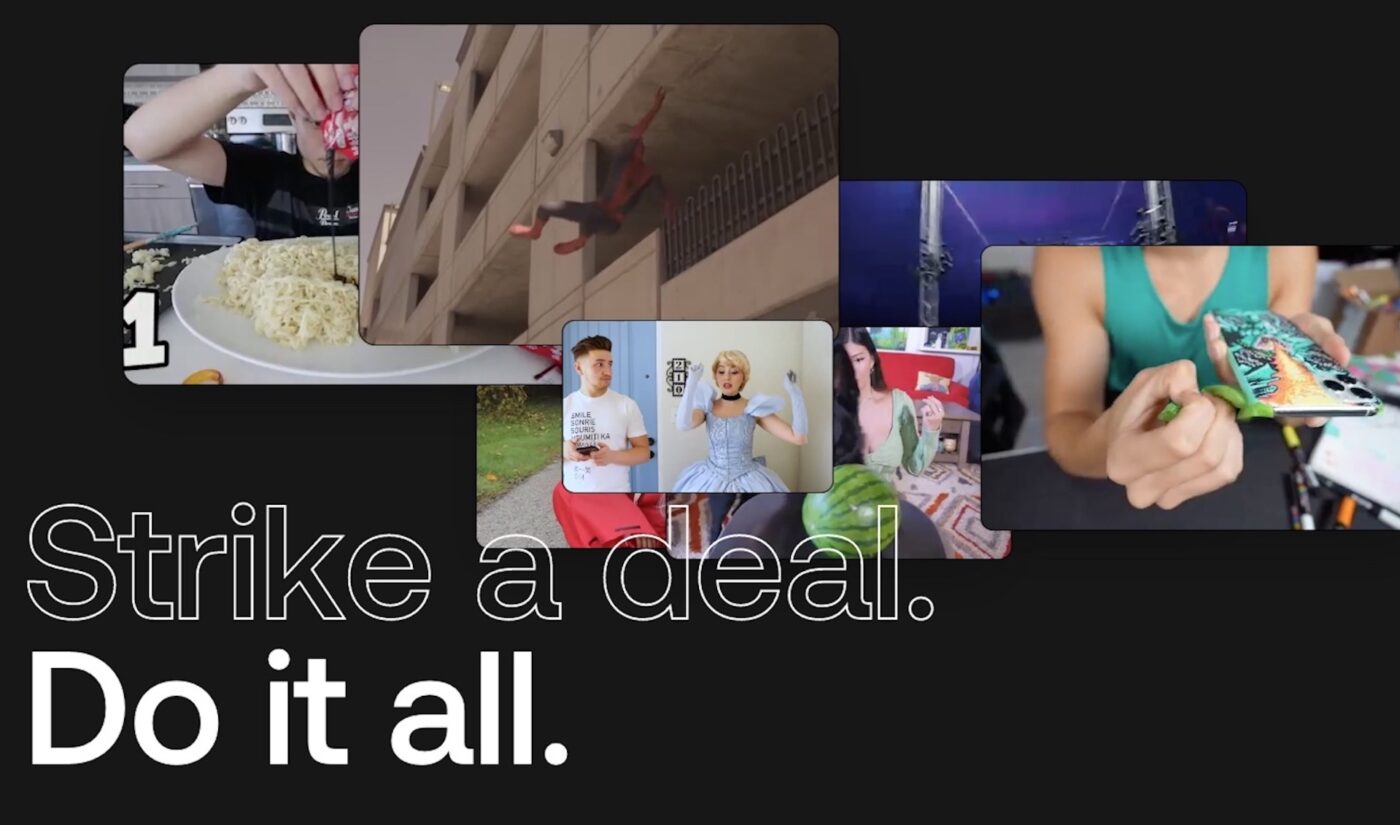Spotter launched three years ago to license the back catalogs of top YouTube creators.
In deals that average $1.5 million apiece, Spotter gives creators cash in exchange for the ad revenues that their back catalogs will generate over a specific time frame. The company hopes to recoup its various investments (and then some) over a roughly four-year horizon. It’s now hired a noted digital executive to help chart its future.
Rob Gabel, the founder and CEO of video analytics firm Tubular Labs and former GM of video optimization platform TubeBuddy (which sold to Brand Entertainment Network), has been named chief strategy officer. As Spotter’s first CSO, Gabel will be tasked with exploring new ways to finance the creator economy beyond Spotter’s core offering.

Subscribe for daily Tubefilter Top Stories
Spotter currently has back-catalog deals in place with the likes of MrBeast, Dude Perfect, Guava Juice, Like Nastya, Vlad & Niki, and Piper Rockelle. It counts 50 employees, and was founded in 2019 by digital vet Aaron DeBevoise, who formerly worked with Gabel at Machinima.
The company was also the first-mover in an increasingly buzzy space. Fellow creator services company Jellysmack announced a comparable licensing endeavor in January, backed by $500 million in capital.
All told, Spotter has deployed more than $300 million to roughly 200 channels from 100 creators — given that many creators choose to re-up for multiple deals or operate deals for multiple channels. Spotter says its partnered creators count 1.2 billion subscribers and 40 billion minutes of watch-time.
Back catalogs are a big business.
Spotter’s business model lies in the fact that while YouTube video viewership — and revenues — decrease over time, the company believes if it bets on the right creators, it can recoup by playing the long game.
“Creators have a lot of trapped value in their library videos,” DeBevoise explains. “For example, we’ll see a video go from generating $1,000 in the first 30 days, down to $600 in the following 30 days. And by the time you’re 24 months out, maybe you’re doing $5 per month.”
Spotter looks to invest in creators with predictable metrics, says DeBevoise. That means creators who have dedicated themselves to a specific topic — baking or pranks, for instance — and have proven high levels of engagement (watch-time, completion rate, comments, likes, and favorites) over a 12-month period.
“If we were always right, we’d be a very thin margin business,” DeBevoise says. “There’s a bunch of risk involved.”
By letting Spotter invest in their pasts, creators can use that upfront cash to invest in their futures — be it editors, equipment, writers, or other production costs. Spotter’s agreements also enable creators to retain creative control and ownership over their old videos, and any ad dollars derived from more recent releases.
“There’s all this future business and revenue potential for creators today,” Gabel said, “but it’s gonna be slow to come if you are financially constrained.”
Football creator Deestroying, for instance, struck his first deal with Spotter in 2020. At least in part due to the capital injection and the additional resources that provides, his channel subsequently gained 1.5 million subscribers and increased viewership by 42%. One year later, Spotter executed a second deal that was two times the value of the first.
“Since we partnered with Spotter last year, we’ve been able to take the invested capital and put it towards growing our business and production team,” Dude Perfect’s Garrett Hilbert tells Tubefilter. “We have some big plans for the future of Dude Perfect and we’re excited to create even more trusted family friendly content for our incredible subscribers and viewers.”
A financier for the creator economy.
Spotter disclosed a Series C round last year, but declined to say how much venture capital and debt it has raised, and the names of its investors. DeBevoise says, all told, individual deal prices have ranged in price from $50,000 to $50 million. One public nine-figure deal was announced in October, when Spotter purchased $125 million worth of old videos from Canadian multi-paltform network BBTV.
Gabel says Spotter is currently envisioning additional investment prospects in a bid to become to become the de facto financier of the creator economy.
This could mean investments in other content platforms (though this is tricky, given that YouTube stands alone in operating a predictable rev-share model) or even financing creators’ future videos. Spotter is also brainstorming ways to fund creators’ consumer products or NFT ventures, direct ad sales, and content optimization services — though it’s still ironing out specifics.
“Financing, the creator economy is a big job and a huge opportunity,” Gabel says. “We’re still inventorying specific products. It’s fast-moving space with a bunch of ideas. Based on where the pilots go with with some of our existing customers, we’ll figure it out.”








